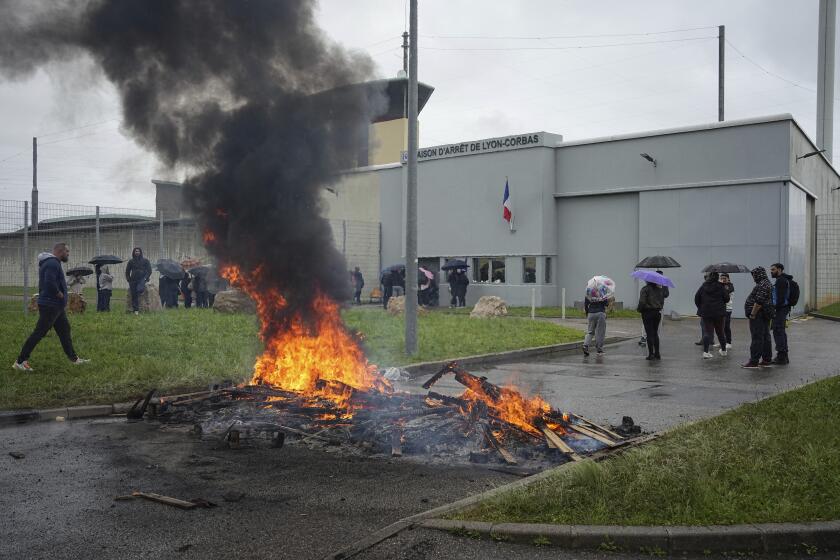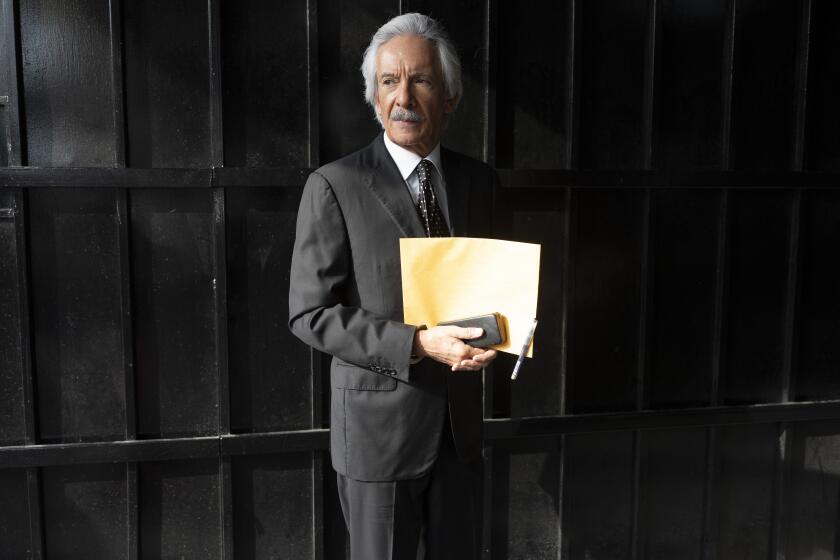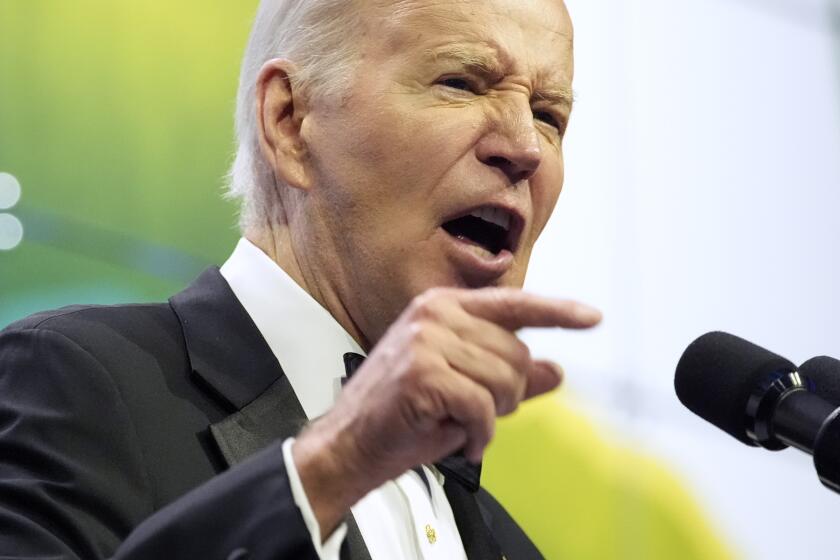Israel’s People Move Away From Extremes
With an unstable government that represents only a minority of parliament and a ruling party battling over withdrawal from Gaza, Israel appears to be hopelessly divided.
In reality, however, the Israeli people have rarely been more united on a vision of national policy, even if the political system hasn’t yet managed to reflect that consensus.
A new centrist majority agrees on two essential insights about the Arab-Israeli conflict. The first is that the occupation is untenable and will ultimately destroy Israel as a democratic state with a Jewish majority. The second is that the root cause of the conflict isn’t the Israeli occupation of the territories won in the 1967 Six-Day War but the Arab refusal to accept the legitimacy of Israel in any borders and the Palestinian leadership’s unwillingness to control terror.
The Israeli consensus repudiates both the “Greater Israel” camp on the right and the Peace Now camp on the left, which together dominated political discourse for decades. The Greater Israel camp insisted that settlements would bring security and that Israel could forcibly incorporate a hostile Palestinian population while still remaining a decent society. The Peace Now camp insisted that territorial concessions would end the conflict and that Israel could arm tens of thousands of terrorists from Yasser Arafat’s PLO, put police uniforms on them and turn them into allies against other Palestinian terrorists.
The illusion of a Greater Israel ended with the first intifada in the late 1980s, when many Israelis became convinced that the Palestinians had a legitimate grievance and that the Arab-Israeli conflict was a struggle between two compelling national narratives. The illusion of a negotiated peace ended with the current intifada, when suicide bombers, encouraged by mainstream Palestinian leaders, convinced Israelis that the Palestinians’ real dream isn’t the creation of their own state so much as the destruction of the Jewish state.
Prime Minister Ariel Sharon’s plan for unilateral withdrawal from Gaza and the construction of a fence through the West Bank (which will almost certainly be followed by some form of unilateral withdrawal on the West Bank) emerged from the demise of both illusions. If we can’t occupy the Palestinians or make peace with them, most Israelis now reason, then the only option is to withdraw to borders that Israel can unilaterally determine.
Thanks to Sharon, who has refashioned himself as the face of this new Israeli perspective, Likud has emerged as the party of the hard-line but pragmatic mainstream. Yet the recent rejection, in a party referendum, of Sharon’s Gaza withdrawal plan has left many centrists feeling politically homeless.
Ironically, Sharon’s policies resonate far more deeply among the general public than they do within his own party. Many members of Likud and parliament seem emotionally incapable of presiding over the dismantling of settlements -- an admittedly traumatic prospect.
Though Sharon remains committed to withdrawal from Gaza, he lacks an effective political mechanism with which to implement it. Ideally, Sharon would now form a national unity government with the Labor Party, whose leader, Shimon Peres, is keen on joining Sharon’s coalition government, as he did once before. But opposition from right-wing ideologues within the Likud and from left-wing ideologues within Labor is blocking the formation of a unity government, despite broad public support for such a move.
The Likud should be sobered by the fate of Labor, which has been cut to half the Likud’s parliamentary strength. Labor’s decline is, in part, a result of refusing to break with the discredited Oslo peace process and to apologize for empowering Arafat, which mainstream Israelis view as one of the greatest mistakes Israel ever inflicted on itself.
Settling in Gaza, according to that same mainstream, is another historic tragedy. If the Likud refuses to uproot the Gaza settlements it may well lose the Israeli center’s confidence and find itself, like Labor, defeated by its own discredited past.
Israel’s challenge then is to empower the centrist consensus while denying ideologues a veto over the nation’s future. The ability of the political system to transcend the old left-right divide will determine not only the fate of Sharon’s government but of Israel’s new sobriety.
*
Yossi Klein Halevi is an associate fellow of the Shalem Center in Jerusalem and a contributing editor of the New Republic.
More to Read
Start your day right
Sign up for Essential California for news, features and recommendations from the L.A. Times and beyond in your inbox six days a week.
You may occasionally receive promotional content from the Los Angeles Times.






